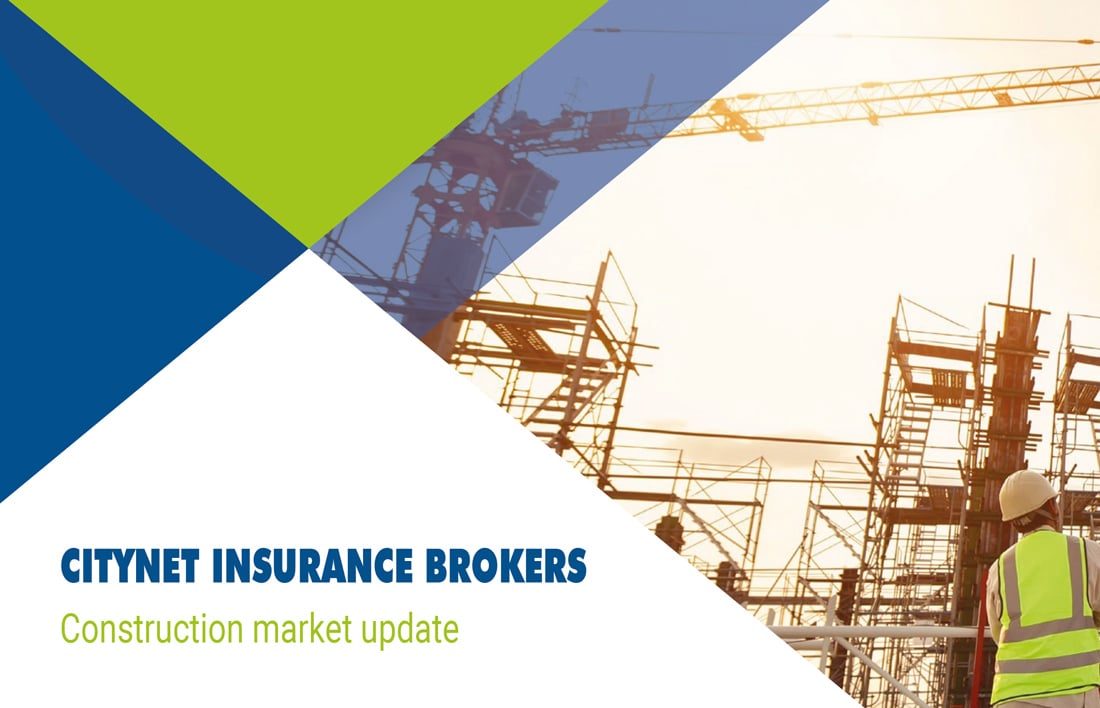Month: February 2021
News
Construction Market Update
Since 2018, the construction insurance market has undergone an acute change, transitioning firmly out of a very soft market. Entering 2020, contractors were prudent about their business prospects. But no one was prepared for the across-the-board disruption caused by the pandemic or the aftereffect that is likely to carry on well into a 2021 hardening market.
In the first quarter of 2020, we witnessed continued rate increases, requests for more information and risk management engagement, as well as increased deductibles, and some of the broad coverage of the past becoming much harder to obtain. This happened before COVID-19 really kicked in, at which point we all had to become accustomed to negotiating over the phone, or via various video conferencing platforms. It is fair to say that we have now entered a time in the insurance market that none of us has ever encountered before, nor want to see again, although we might need to get used to this for a while longer.
Like most other business sectors, the construction industry is looking with uncertainty at 2021 that will certainly continue to be affected by the ongoing pandemic as the virus mutates. Balancing opportunities with risks has always been the central challenge for contractors, Now, more than ever, the role of a broker is very important and construction companies need to partner with experienced brokers in order to ensure their story is pitched well to the insurance marketplace, pairing them with the right carriers, right-sizing coverage and tightly managing costs.
The economic shutdown delayed many projects that had been in the bidding or final stages. Significant material/supply chain disruptions jeopardized schedules and operations. Contractors also were hit when subcontractors couldn’t report to jobs, either because their people were exposed to the virus and subject to quarantines, or because they were unable to meet health guidelines.
Specific Areas of Concern
Residential Sector
As the market hardens, insurers are particularly cautious with any portfolio that has a poor claims experience or includes risks outside of their core underwriting appetite, resulting in increasing premium rates and restricting cover. Despite this, there is still a wide appetite to underwrite well risk-managed residential portfolios.
Water Damage
Water damage is a significant market concern. Insurers are keen to work with brokers to identify sites that perform poorly from a claims perspective. Many markets are encouraging clients to follow the advice in Managing Escape of Water Risk on Construction Sites, the guide issued by the Construction Insurance Risk Engineer Group.
Timber Frames and Cladding
It is fair to say that timber frame buildings continue to be a challenging area for the insurance market. The rates for timber frame buildings can be greater than those of a steel frame build, and policies can come with higher excesses. Following the Grenfell fire tragedy in June 2017, underwriters have been cautious about cladding. A greater understanding is sought of the full construction methods, with a focus on the composition and installation of cladding, particularly with projects that are more than 18 metres high.
Cyber risk – a growing concern
Following 2021 reinsurance treaty renewals all reinsurers have cyber cover exclusions, and as such there are a lot of processes that leave an open door to cyber risk. Many contractors buy policies where cyber is blended with their professional indemnity insurance. The protection offered by such policies might be limited versus a stand-alone cyber policy. Therefore, decoupling cyber for broader protections will also result in better terms and conditions. As cyberattacks are intensifying, especially during the Covid-19 crisis, the construction industry had not been spared. There’s been a notable uptick in cyber claims, and construction is particularly vulnerable to social engineering. This involves a cyber-criminal impersonating senior management or important vendors, using business email compromise tactics and effecting the release of large sums of money or information that can be monetized. To avoid the risk of a cyber-breach, firms should periodically undergo audits of their cybersecurity environments. An experienced broker can provide a great insight and guidance on cyber insurance policies making sure these are adequate for the business.
Contractors’ financial health under pressure
The industry is working with weakened balance sheets and compressed profit margins due to the pandemic’s impact. Many contractors had to cover unbudgeted labour costs as they tried to catch up on jobs delayed due to numerous virus-related reasons.
Contractors and subcontractors should count on their brokers to keep them on top of developments in the SDI and surety markets. Risk selection is another important factor in a hardening market as insurers tend to become choosier in whom they agree to insure. For subcontractors, it points out the need to self-market by sharing a good risk management track record with safety successes. For general contractors, it’s important (for any type of insurance) to demonstrate how quality, as much as safety, is managed on the job site. Quality has always been an important differentiator for contractors, and is now emerging as an important insurance underwriting (risk selection) factor as well.
Respecting the continuing risk of pandemic
As we’ve rolled into 2021, new virus mutations will constitute a continuing operational risk for the industry. The pandemic will continue to haunt supply chains as well, with knock-on effects impacting both budgets and schedules this year. Contractors are being reminded of the difference between an “efficient” supply chain and a “resilient” one.
The insurance industry will be hit hard by COVID-19 exposures, with the full extent of them not yet known by the industry.
Navigating the Market
In order to limit cost increases and improve risk profiles for their construction clients, retail brokers will need to look for the right wholesale broker that has ties with the Lloyd’s and London market and an excellent knowledge for the construction industry. Citynet Insurance Brokers has been established for over 20 years and their experience within the construction industry is an unparalleled one.
What can construction companies expect in 2021
Whilst businesses and industries were impacted by COVID-19, some more than others, all had to adapt. Fortunately, construction was considered an essential business, so for the most part, the industry did well in 2020.
As the industry works to rebuild this year, insurance renewals are likely to be tough as underwriters consider stressed financials and other issues and trends that pose risks to the sector’s recovery, short and long-term.
Trying to forecast where rates will go this year is at best an educated guess. Every account is underwritten individually and ultimately pricing will be affected by risk control strategies and loss histories.
The challenges here will be heightened by a hardening insurance market, where rates trend higher as availability tightens. In this environment, contractors should expect their insurance brokers to be their partners and advisors in anticipating the risks ahead and shaping the strategies to manage them effectively.
Please download this article in a pdf format here.

Read Our Latest Stories
Broker Expo 2024: Meet the Citynet Team
Read More >>The Citynet Cup – Fantasy Football Competition
Read More >>Citynet is launching its brand-new company brochure.
Read More >>News
Construction Insurance

SPECIALIST FACILITIES FOR THE HIGH-RISK CONSTRUCTION SECTOR

